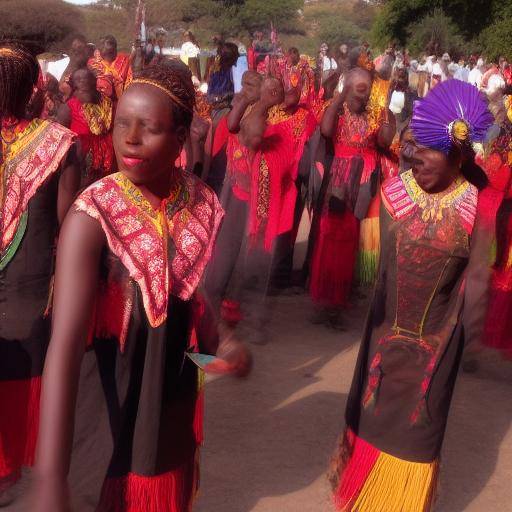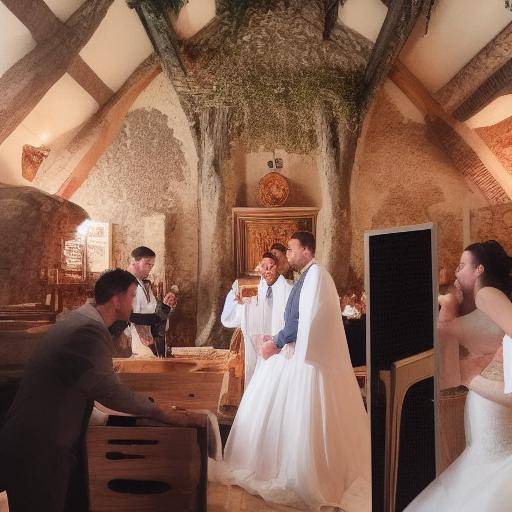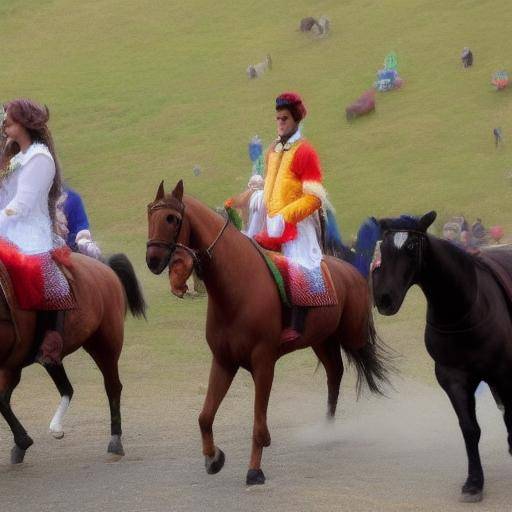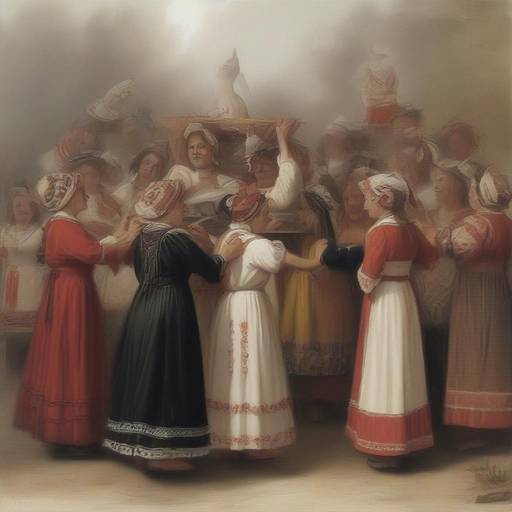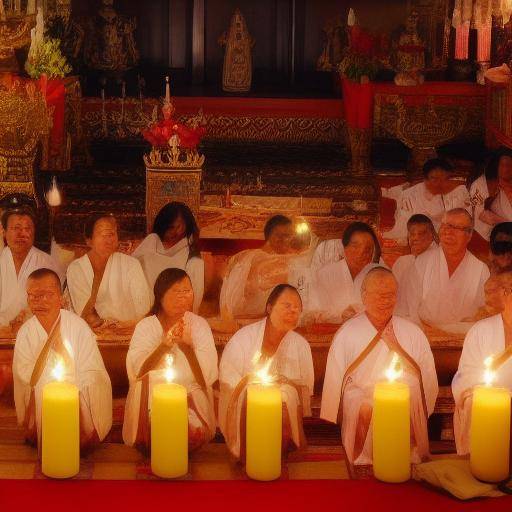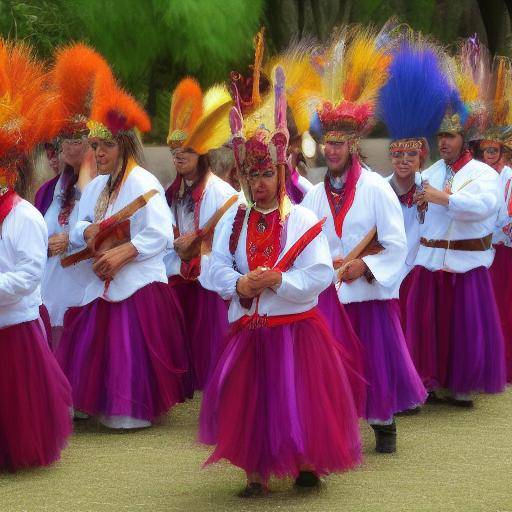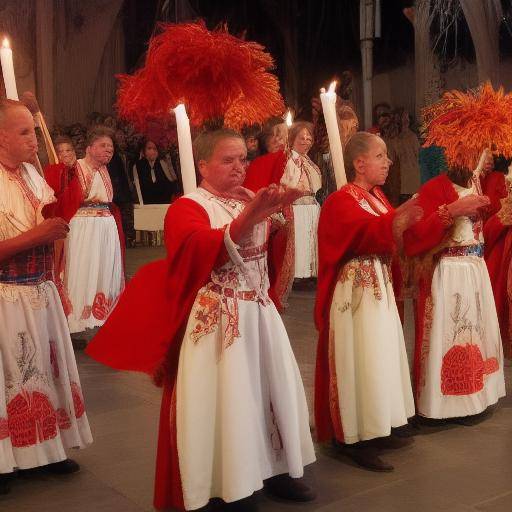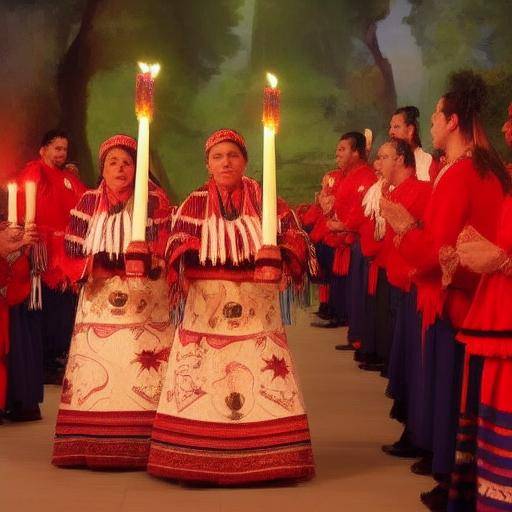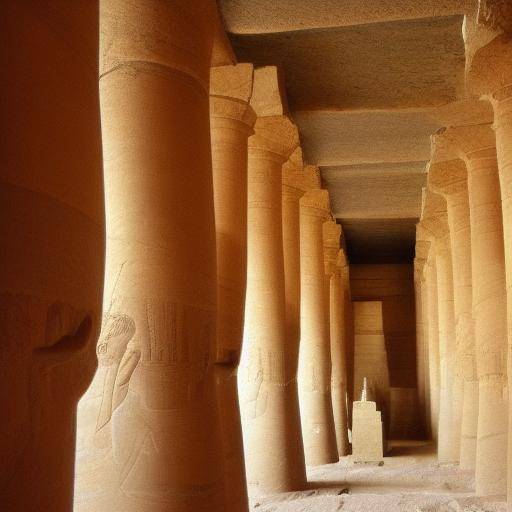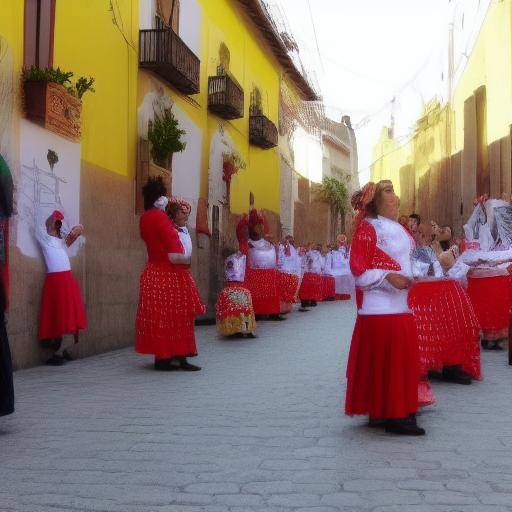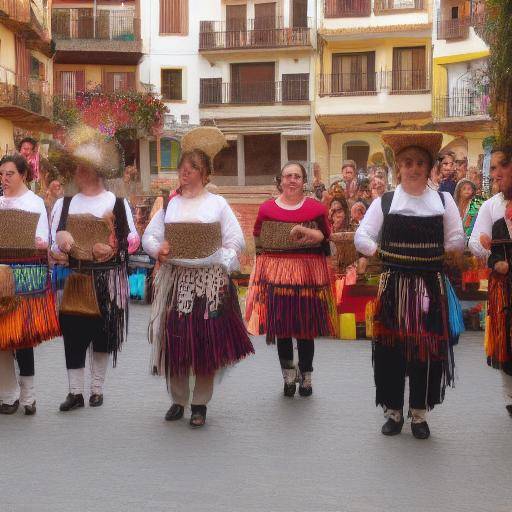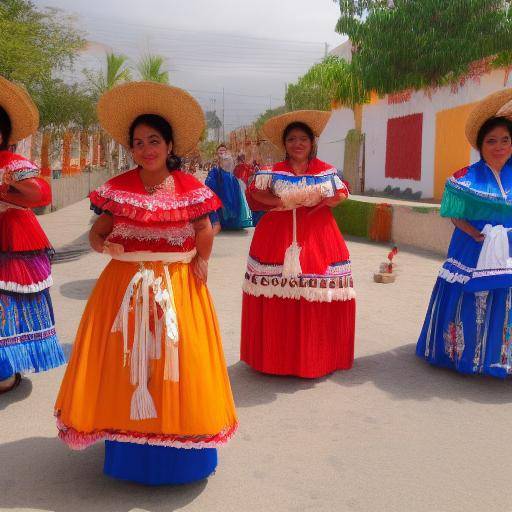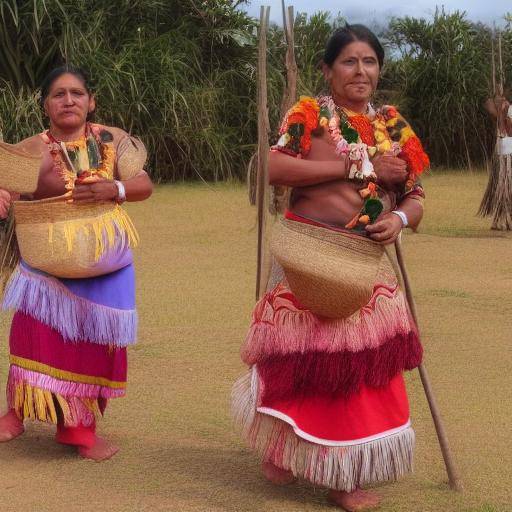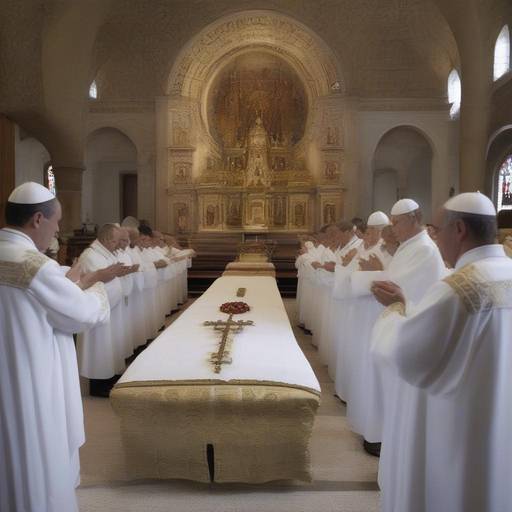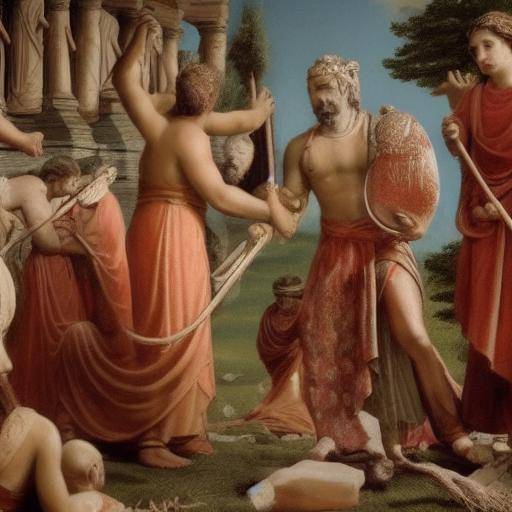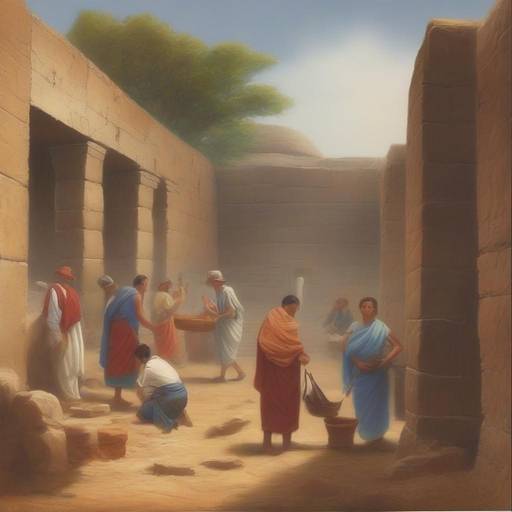
The rites of initiation are a fundamental part of the history and culture of ancient civilizations. In this article, we will explore in detail the historical relevance, evolution and influence of the rites of initiation in different ancient cultures, as well as their relationship with rituals. We will learn about milestones, benefits and challenges, and we will analyze how these initiation rites have lasted until today.
Introduction
The rites of initiation have been a significant practice in the traditions of ancient civilizations. From ancient Greece to the indigenous cultures of America, these rituals marked the transition from one stage to another, from childhood to adulthood, from one social status to another, or from one role to another in the community. The rites of initiation have provided a framework for education, social cohesion and personal development, rooting in human history in a profound and meaningful way.
Origin and Historical Importance
The rites of initiation have their roots in older civilizations, where they served as a rite of passage to mark the beginning of a new stage in an individual's life. These rituals symbolized the transition from innocence to maturity, integration into the community and the acquisition of roles and responsibilities.
Egypt: Rites of Initiation in Ancient Egypt
In Ancient Egypt, initiation rites were closely linked to the acquisition of knowledge and skills to become a respected member of Egyptian society. Priests, for example, went through elaborate rituals that included physical, mental and spiritual tests. These rites ensured that only the most skilled and worthy access to the secrets and responsibilities of religious life.
Greece: The Eleusian Mysteries
In Ancient Greece, the eleusian mysteries were secret rituals of initiation celebrated by the goddess Deméter and her daughter Persephone. These rites symbolized the transition from life to death and immortality of the soul. The aspirants to initiates participated in processions, prayers, secret teachings and sacred ceremonies, thus acquiring a deeper understanding of the mysteries of life and death.
Evolution and Continuity
Throughout the centuries, the rites of initiation have evolved to adapt to cultural, social and religious changes. In some societies, these rituals remain entrenched practices that are transmitted from generation to generation, while in others, they have experienced significant transformations or have even fallen into disuse.
Latin America: Rites of Initiation in Indigenous Cultures
Indigenous cultures in Latin America maintain a strong link with the rites of initiation. From the ceremony of the puberty of the Amazonian tribes to the rite of the jaguar man among the Mayan peoples, these rituals continue to be an integral part of the cultural and spiritual identity of many indigenous communities.
Deep analysis
Benefits and Challenges
The rites of initiation have proven to offer a wide range of benefits for individuals and communities in ancient civilizations. These benefits include strengthening the sense of belonging, transmitting traditional knowledge, promoting self-reliance and developing social and emotional skills.
However, they also faced challenges, such as the rigidity of certain rituals, the exclusion of certain groups of society and the potential for abuse of power by initiators.
Current Outlook and Trends
At present, many of the principles underlying the rites of initiation in ancient civilizations remain relevant. There is a renewed interest in adapting these rituals to contemporary environments, such as the integration of personal leadership and development practices based on ancient rites of initiation into training and coaching programs.
Comprehensive review
Applications and Best Practices
As society evolves, it is crucial to understand how initiation rites can adapt to address modern challenges. Communities and organizations are exploring new ways of incorporating meaningful rituals that promote emotional connection, resilience and sense of purpose in an increasingly complex world.
Comparative analysis
The rites of initiation of ancient civilizations share revealing similarities, such as the transmission of knowledge, the observance of strict rules and the holding of a new status, while differing in their specific practices and symbolism.
Practical Tips and Accessible Recommendations
Implementing Initiation Rituals in News
- Identify the unique needs and challenges of the specific community or group.
- Adapt and reinterpret ancient rituals to address contemporary concerns.
- Involve key members in the design and implementation of rituals to ensure their authenticity and positive impact.
Vision of Industry and Opinions of Experts
Future Outlook
Experts highlight the importance of preserving the essence of initiation rites while adapting to the changing needs of modern society. Contemporary rituals are expected to continue to evolve to meet the demand for greater interpersonal connection, meaning and purpose in an increasingly technological and depersonalized world.
Case Studies and Practical Applications
Examples of Modern Initiation Rituals
- Organizations that incorporate initiation rituals into the integration of new employees to foster a sense of belonging and commitment from the first day.
- Community groups that adapt ancient initiation rituals to celebrate meaningful transitions in the lives of young people and strengthen their connection to the culture and history of their community.
Future Trends and Predictions
Emerging trends
The initiation rites are expected to continue to evolve to meet the needs of contemporary societies, adapting to cultural diversity, changing family structures and the demands of modern life. In addition, there is an increase in the adoption of significant rituals in professional and educational settings to promote cohesion, resilience and well-being.
Conclusion
In conclusion, the rites of initiation into ancient civilizations have left a lasting legacy that transcends times and cultures. Its lasting influence on modern rituals and remains relevant in contemporary society. By understanding its current history, evolution and applications, we can appreciate its continued importance in the formation of individual and collective identities.
Frequently asked questions
What is the importance of initiation rites in today's society?
The rites of initiation remain important in today's society, as they provide a sense of belonging, transmit knowledge and skills, and mark significant transitions in the lives of individuals.
How have initiation rites evolved over time?
The initiation rites have evolved to adapt to cultural and social changes, incorporating new practices and values while maintaining the essence of transition and personal growth.
What challenges do initiation rites face in the modern world?
The rites of initiation face challenges such as the loss of meaning due to secularization, the need to adapt to cultural diversity and the guarantee that they do not exclude or discriminate against specific groups.
What are some examples of contemporary initiation rites today?
Examples of contemporary initiation rites include the integration of new employees into companies, graduation ceremonies into educational institutions, and rituals from step to adulthood in different cultures.
How can communities adapt ancient initiation rituals to modern society?
Communities can adapt ancient initiation rituals by engaging with the creative reinterpretation of rituals to address current needs and challenges, maintaining their authenticity and cultural significance.
What is the role of initiation rituals in personal and emotional development?
The initiation rituals play a crucial role in personal and emotional development by providing a symbolic framework for the transition, growth and acquisition of new responsibilities, thereby promoting self-esteem and resilience.
How can initiation rites contribute to social and community cohesion?
The rites of initiation contribute to social and community cohesion by creating a sense of shared belonging, strengthening interpersonal ties and transmitting cultural values and traditions to future generations.
Concluding, the rites of initiation into ancient civilizations have demonstrated their relevance and resilience throughout history, continuing their influence in today's society. By understanding their evolution, benefits and challenges, as well as their current applications, we can appreciate the lasting impact of these rituals on the lives of individuals and communities.

